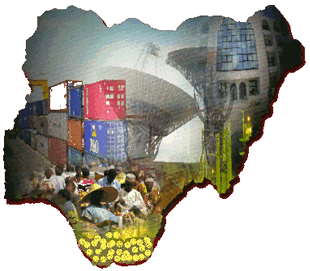Magical Accounting: A Blessing or A Curse for Nigeria?

BY SAKSHI KUMAR:
In approximately two month’s time, Nigeria’s GDP is expected to go up by over 40% — a development that may result in South Africa being ousted as Sub-Saharan Africa’s largest economy. This is not due to a magical increase in the quantity of goods and services produced by the Nigerian economy, rather, it is due to a change in the way in which its GDP is calculated.
Since early 2012, government workers have been combing through each of the country’s industries in order to collect output information and convince businesses of all sorts to relinquish their financial data. The figure, which is to be released in December, will take into account previously neglected sectors of the economy such as telecommunications and “Nollywood”, the Nigerian version of Hollywood. It is interesting to note that Nigeria is not the first African country to have undergone a change of this sort: in 2010, Ghana’s GDP similarly went up by over 60% in the span of a single day (after which Todd Moss — a development scholar at the Center of Global Development — exclaimed “Boy, we really don’t know anything!”). For some, this sudden and rapid increase in Nigerian GDP comes as fantastic news. The move should result in a lower public debt to GDP ratio — it is anticipated to reach levels between 10.5% and 14.5%, values that are significantly lower than that of 17.3% in 2011. The GDP re-base will also put it ahead of South Africa as the largest Sub-Saharan African economy.

To the vast majority of people, however, this is a change that will put Nigeria through immense difficulty. It is highly likely that in December, Nigeria will be given middle-income country status. This classification would make it ineligible for several potential lines of credit from organizations such as the World Bank, and the International Monetary Fund. This ineligibility for funds – funds that Nigeria has grown to depend on – could have severe consequences. It is important to note that while the nominal value of GDP will increase, the Nigerian economy is still the same. Nothing has changed; simply counting things differently will not spur a sudden change in an economy’s capacity to produce goods and services. To this end, while several people are giddy at the notion that Nigeria might overtake South Africa, one needs to look no further than the consumer markets. If you look at any metric simulating the size of the consumer market in South Africa, and look for a comparable figure in Nigeria, it will become immediately evident that the difference is more than 10%.
Furthermore, a lower public debt to GDP ratio (and therefore lower deficit) may influence the Nigerian government to spend more. This is a dangerous move that could not only push the country back toward high inflation, but also distract policymakers from focusing on the longer-term developmental problems that Nigeria must bring itself to face — lower debt ratios may superficially sound better, but the real measure of sustainable policy has always been a government’s servicing capacity as opposed to its ratio of debt to GDP.
From a broader perspective, this sudden change in GDP is indicative of a much larger issue that plagues the African continent — development statistics tell us much less than we would like to think about income, poverty, and growth in the region. Economists, investors, and policy makers alike have been devising strategic plans to lift countries out of poverty based on data that is totally unreliable. In fact, Morton Jerven (author of Poor Numbers, a book analyzing African development statistics) claims that our current data on African economies is inaccurate by a margin of around 50%. Nigeria is not the only country that is due to see a staggering rise in GDP: if and when the governments of countries such as Kenya, Niger, and Chad decide to rebase their economy, it is almost certain that they will see GDP increases of similar magnitudes.
To make a long story short, the state of data collection in the African continent means that anti-poverty policies are being prescribed with little accurate data. Whether or not we are helping or hurting these economies with credit lines, food aid, and money transfers is genuinely unknown — a thought that should worry all developmental economists.
Sakshi Kumar ’16 is in Davenport College. She focuses on public health and micro-finance in developing countries in South Asia and Sub-Saharan Africa. Contact her at sakshi.kumar@yale.edu.